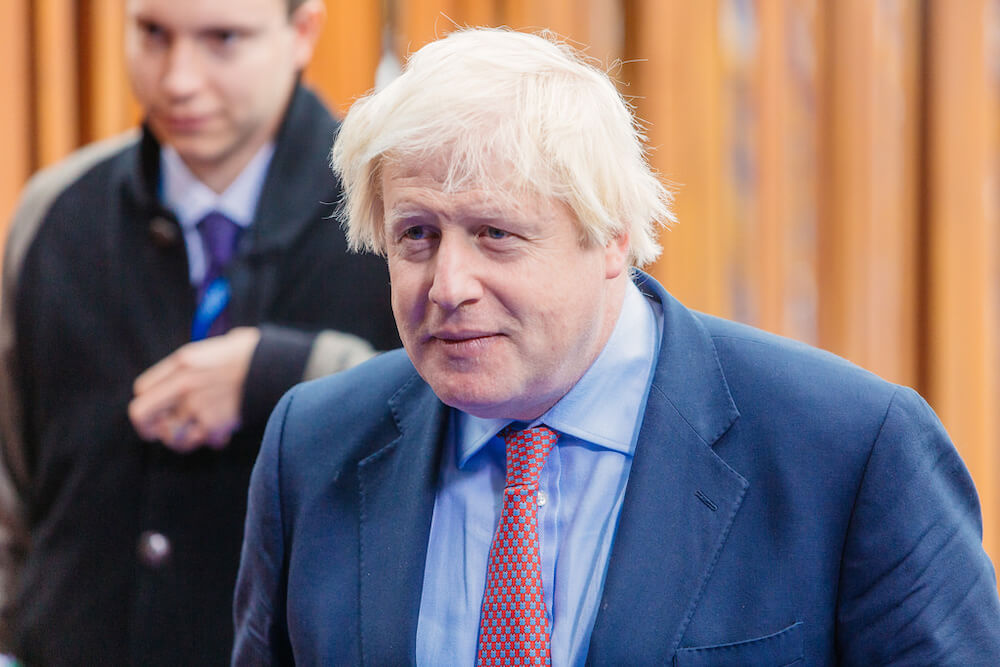Can you have a vote of no confidence in the workplace?

Last night, the UK’s Prime Minister, Boris Johnson managed to survive a vote of no confidence, although it was the worst verdict on a sitting prime minister by their own party in recent times.
Under Conservative Party rules, a vote of no confidence is triggered if 15% of party members – currently 54 MPs out of 359 – write a letter of no confidence to the Chairman of the 1922 backbench committee, a role which is currently held by Sir Graham Brady.
Sir Graham Brady said 359 votes were cast and there were no spoilt ballots. The total number of MPs who gave of vote of confidence in Boris Johnson totalled 211, with 148 MPs voting for no confidence in the Prime Minister. Therefore, more than 40% of Tory MPs voted against Johnson.
The triggering of a vote of no confidence in the Prime Minister is likely linked to Partygate. Several of the Prime Minister’s fellow MPs and members of the public have expressed anger following the scandal, which has seen Johnson receive a fixed-penalty notice for breaking Covid laws.
Following the scandal, Kirstie Beattie, Principal Employment Solicitor at employment law and HR support firm WorkNest, commented on whether you could have a vote of no confidence in the workplace.
She said: “Employees cannot typically vote to oust a manager. It’s not a practice we have come across. Some collective agreements made between the workplace and the trade union might allow for such a practice but it’s uncommon and it’s likely they will be very restrictive in terms of the power that the employees have.
“Dismissal of a manager – assuming they have at least two years of service – would require to be procedurally and substantively fair. Under the Employment Rights Act 1996, an employee can be dismissed fairly for “some other substantial reason” that is not conduct, capability, redundancy or statutory ban, and this includes where there is an irreconcilable breakdown in relationships which could be similar to a vote of no confidence but dismissals based on relationship breakdowns are very rare. Instead, the employer will normally pursue the concerns as a matter of conduct or capability.
“It’s interesting to stop and think, though, as an employer that if a vote of no confidence could be brought in a normal working environment, would you have one on your hands? and would you survive it? It helps us to think about the status of our working relationships.”
Effects of the no-confidence vote on the UK market
After the no-confidence vote last night, the UK market was virtually unaffected this morning.
Sophie Lund-Yates, Lead Equity Analyst at Hargreaves Lansdown, comments: “The FTSE 100 has largely shrugged off the political drama of yesterday’s no-confidence vote, with a dramatic reaction avoided. However, the situation has put a ceiling on progress, with no meaningful additions to the 75-point gains the FTSE began the week with.
“Political turmoil is always bound to leave a mark on UK investor confidence, but the full extent of any market moves will depend on how quickly the saga is truly put to bed. There’s still plenty of uncertainty looming about the stability of the current government, and until those jitters have gone, the market will struggle to find its place.
“The pound has edged lower: it’s down to £1.247, heading back towards two-year lows. There is speculation that the result could end up weakening the economy further if the Prime Minister takes measures to boost his political standing among the party. This could include a tougher stance towards the EU in terms of trade and the Northern Ireland protocol, and cutting taxes, which could add to inflation by supporting demand in the economy for longer. This could pile more pressure on the Bank of England to raise interest rates more steeply.”
Lund-Yates also provides an insight into the US and Asian markets this morning.
She continues: “Things are a little brighter in the US where the Nasdaq climbed 0.4%, the S&P 500 0.3% and the Dow Jones was broadly flat overnight. A lot of this is a function of no news being good news, with there being a relative lull in activity in the economic and market arenas.
“Of course, Elon Musk is doing his best to be heard in the quiet, with news breaking that he has threatened to walk away from the $44bn takeover of Twitter, saying the social media giant is hampering his requests to learn more about its user base. Some would argue this is a tactic to negotiate a lower price, but there’s also a very real possibility Mr. Musk chooses to ditch the deal. History has shown he’s not a traditionalist so the fact that walking away would be difficult and costly, frankly won’t hold too much weight.
“Asian markets are having a tough time, with losses led by the ASX. This comes as the Reserve Bank of Australia has raised interest rates by half a percentage point, which is more than had been expected. While this move has come as a surprise, it’s possibly a function of faster hikes, rather than the total amount being more than expected. A tempering or even freezing of future hikes is possible, but this rests on how successfully this latest move controls the less-than-ideal economic situation.
“Easing Covid restrictions in China are expected to boost demand for oil in the coming weeks, meaning Brent Crude is still hovering around $120 a barrel. This is despite promises from the oil cartel, OPEC+, which plans to increase output in July and August by 648,000 barrels per day – 50% more than previously planned. Its ability to produce these ramped-up volumes is being questioned, and together with Saudi Arabia’s decision to hike prices higher than expected, are all feeding into continued supply anxiety, which is keeping prices high.”

